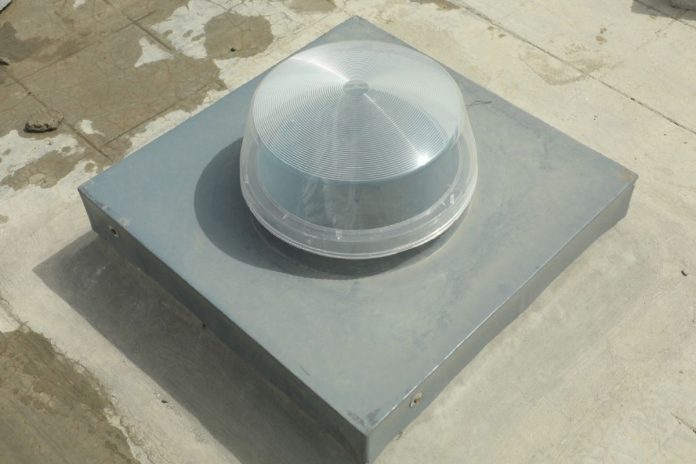Snapshot
What makes this system special is that it spreads sunlight into the building with the help of glass tubes, and it is transparent and resistant to ultraviolet light.
Promoting green energy, National Capital Region Transport Corporation (NCRTC) has installed unique ‘solatube’ lighting, a state-of-the-art daylighting system, in the administrative building of Duhai depot.
According to the NCRTC, the administrative building of RRTS is being equipped with the solatube daylighting system for illumination of the Duhai depot at Ghaziabad.
By using this green energy system, as long as there is sunlight during the day electricity used for lighting can be saved in the building.
A total of 30 solatube daylights are being installed on the third floor of the administrative building in the working desks, corridors, common areas and washrooms etc.
What makes this system special is that it spreads sunlight into the building with the help of glass tubes. Its functioning is different from that of a solar power system. It transfers sunlight through a tube directly to the area where the light is needed.
The solatube day-lighting system consists of four components: a dome (capture zone), flasher (dome support), reflective infinity tube (transfer zone) and diffuser or bulb (delivery zone). Dome (capture zone) is a round-shaped device to receive sunlight, which is mounted on an open roof.
It is transparent and resistant to ultraviolet light. Along with this, a flasher is installed to support the dome, so that it doesn’t move from its place. The light received by the dome then enters the reflective infinity tube. The other part of this tube is connected to a diffuser inside the building. The reflective infinity tube transmits the light from the dome to the diffuser and the diffuser illuminates the room or wherever it is installed.
As part of its vision to contribute toward a clean and green environment in India, NCRTC is striving to achieve the highest rating of IGBC certification for all RRTS stations, depots and other buildings. The use of the solatube daylighting system is also a step in this direction which will encourage the use of green energy.
Apart from this, solar panels will be installed on the roof of the RRTS station and depots to harness solar energy. NCRTC is striving to get mixed energy mainly from renewable and solar energy for the RRTS project. At present, the target has been set to generate a minimum of 10 MW of solar power, and about 40 per cent of the total energy requirement of the Delhi-Ghaziabad-Meerut RRTS corridor is to be derived/generated from renewable energy.
The station infrastructure equipped with green energy will enhance the overall experience of the commuters on the green transport model, and encourage the use of public transport. This will also prove helpful in reducing carbon emissions.
Apart from stations and depots, rainwater harvesting systems, sewage treatment plants, landscaping, green belts etc, will also be developed in all power sub-stations of RRTS. Electric sub-stations will have LED lights, and ACs installed in them will be eco-friendly. There will be windows for ventilation and natural air along with other infrastructure to make it environment-friendly.


